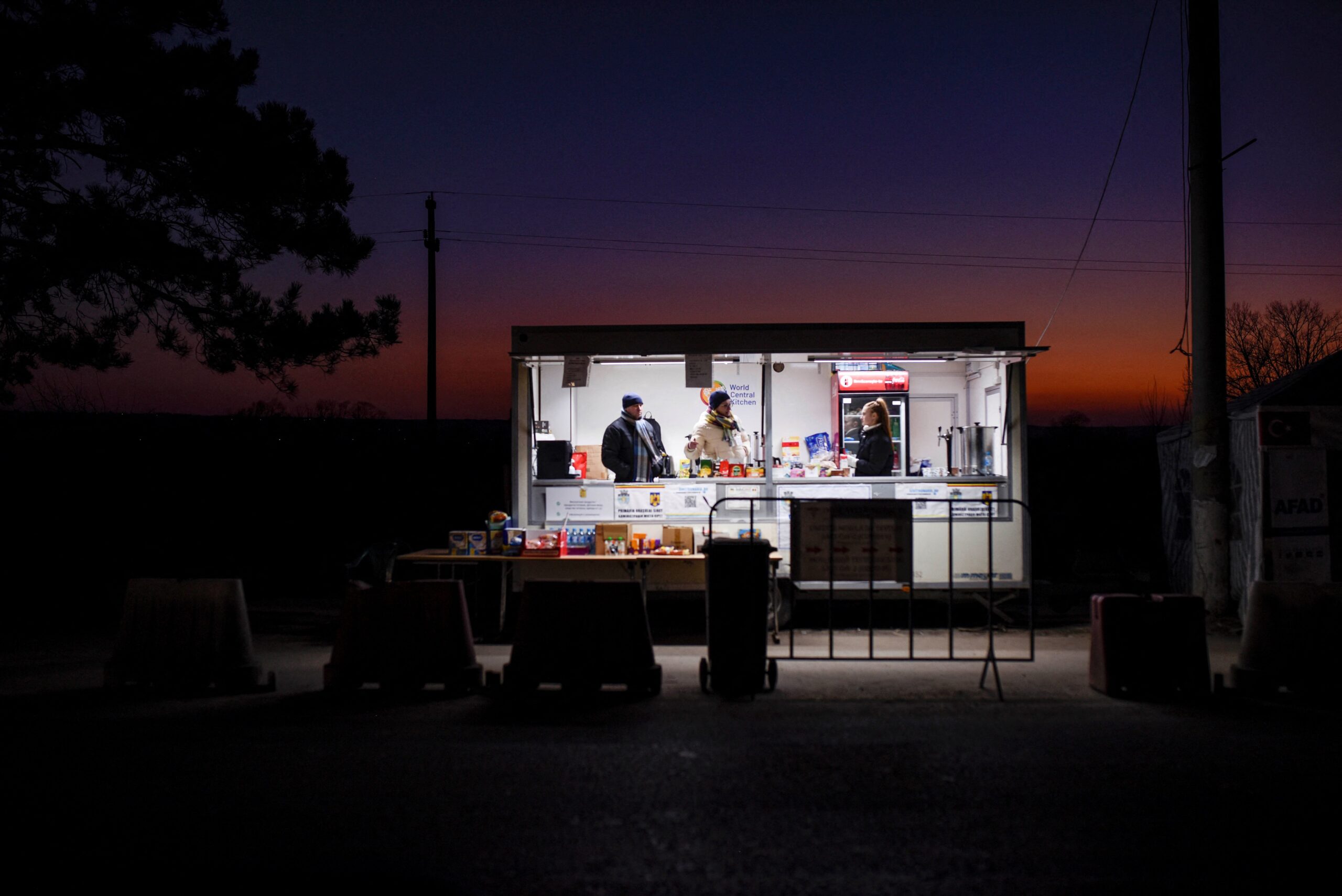Romania Needs a Longer-Term Approach to Welcoming Displaced Ukrainians

Romania has done an extraordinary job receiving over 1.9 million Ukrainians since February. Resounding praise for the Romanian government and its people was certainly warranted. Indeed, modern Romania had never seen such significant numbers of people cross their borders until Russia’s aggression forced millions of Ukrainians to flee. And with 649 kilometers of shared border, it is no surprise that Ukrainians fled to Romania where they were greeted with physical and metaphorical warmth. However, that warm welcome is no longer apparent. While the initial reception was admirable albeit chaotic, the current humanitarian response is lacking. This must change.
More than 108,000 Ukrainian refugees have decided to remain in Romania. Despite the offers of free flights, places to stay, and legal protection in other European Union (EU) member states such as Germany, France, and Portugal, tens of thousands of Ukrainians are still in Romania. They have chosen to stay because––among other reasons––they want to live in a familiar region and they want to be close to home so they can return to Ukraine as soon as possible. But for as long as the Russian military doubles down on its goal to take control of Ukraine–– and perhaps for much longer––Ukrainians will be in Romania. Therefore, the Romanian government must do more to support Ukrainian refugees and the Romanian people need to reinvigorate the welcome that greeted Ukrainians in the beginning of the war.
Since the first day of the invasion, Romanian civil society has stepped up to respond to arriving refugees. They have provided food, clothing, shelter, medical services, and onward transportation to hundreds of thousands of refugees. And now, they continue to assist the Ukrainians who are living in Romania. They are helping them secure accommodation, trying to link them up with employers, providing them with food in certain locations, and offering mental health support in some cases. However, as the humanitarian response moves from an emergency to a phase of integration, local civil society organizations are carrying too much of the responsibility. They are not getting the support they need from the national government. And at the same time, the general public is losing interest at best, growing resentment at worst.
At the end of July 2022, President Iohannis noted that while no one knows how long the war will last, “we [Romania] have to be supportive and tolerant and we need to offer refugees the protection and the tranquility they [Ukrainians] need, until those who want to return home will be able to safely do so.” He went on to say that Ukrainians will need all the support of the state and society to rebuild their lives in Romania. The society has certainly provided a lot of support. Now is the time for the state to step up.
What does this look like? It means providing more funding to local non-governmental organizations and civil society. It means providing financial and technical support to municipal governments specifically for the refugee response. It means using funds from the EU to give refugees cash assistance rather than just subsiding hosts. And it means registering refugees and their hosts so that the authorities know where Ukrainians are and can thus consult with them, assist them, and ensure that they are not living in dangerous circumstances. This is particularly important given that more than 90 percent of the Ukrainian refugees in Romania are women and children and the risks of exploitation, gender-based violence, and human trafficking are especially high.
More support from the government will reduce those risks and bolster civil society’s efforts—efforts that are crucial as Ukrainians try to integrate. Simultaneously, the Romanian public should embrace Ukrainians into their communities and not scapegoat them for the war or price increases. For example, many Romanians are frustrated by the high gas prices. Some think that this is a direct result of Russia’s recent decision to halt most gas imports into Europe and thus by extension, they are frustrated with refugees. However, Romania is almost entirely energy independent, producing 80 to 90 percent of its own gas. And regardless of why there are high prices and rising inflation, Ukrainian refugees in the country are not the primary reason for these challenges. They have been forced to flee their homes and not only deserve protection, but as President Iohannis said, they deserve a sense of “normalcy.”
For Ukrainian refugees in Romania, life will not feel normal for a long time. But, getting as close to it as possible will require additional government action, sustained civil society engagement, and renewed solidarity among the public to welcome. Romania demonstrated remarkable unity and mobilization in the first days and months of the war. Indeed, on a recent trip to the country, United States First Lady Jill Biden described the response as “amazing” but also “just the beginning.” Almost one year into this war, Romania must acknowledge that it is time for integration. And this can only be achieved with more engaged government leadership and positive public sentiment.
Cover Photo: Members of the humanitarian organizations offering food and drinks for Ukrainian refugees are seen inside a kiosk at the Ukrainian-Romanian border crossing in Siret, northern Romania, on March 19, 2022. Photo by ARMEND NIMANI/AFP via Getty Images.